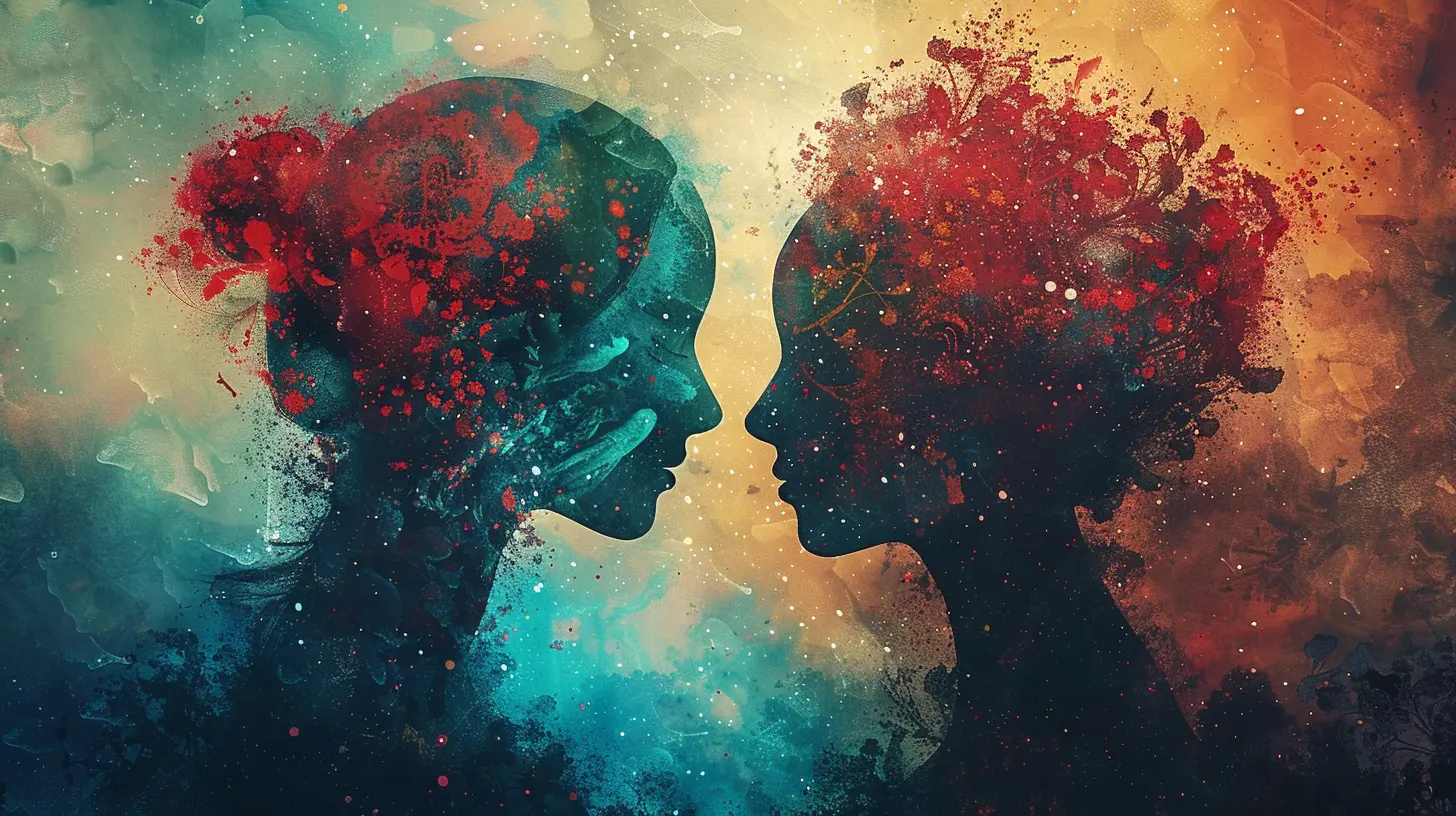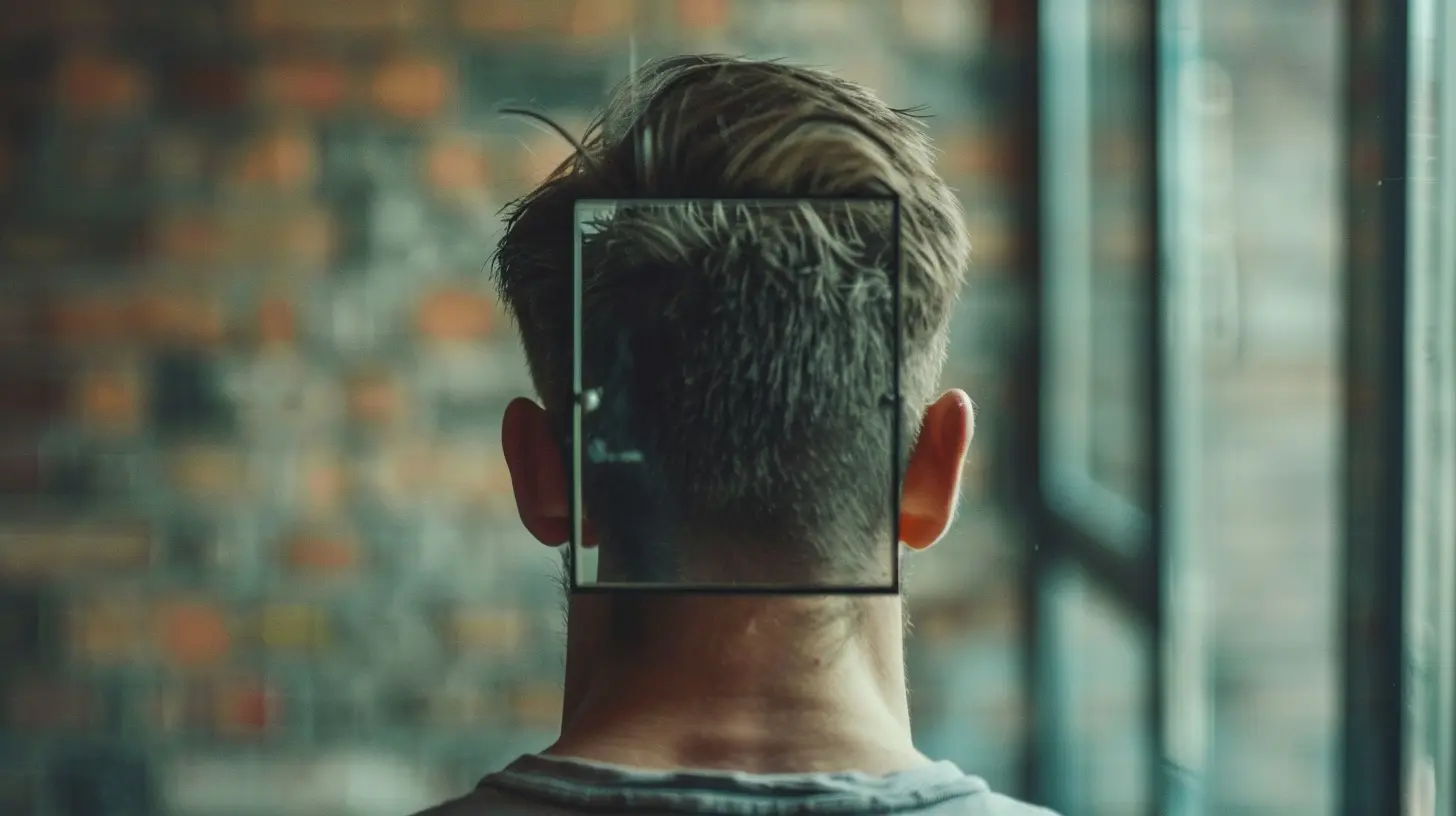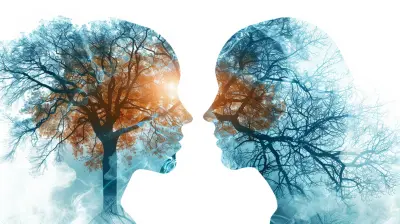Body Image and Mental Health: A Two-Way Relationship
28 October 2025
Let’s be honest—how we see ourselves in the mirror can make or break our day. Sometimes we feel great; other times, not so much. But have you ever stopped to think about just how deeply your body image is connected to your mental health? It’s not just a fleeting thought or a passing insecurity—it runs much deeper and can shape the way we view the world and our place in it.
In this post, we’re diving head-first into the tangled relationship between body image and mental health. It’s not a one-way street; in fact, it’s more like a roundabout—confusing, emotionally charged, and sometimes hard to get out of. Let’s unpack it all, bit by bit.
What Exactly Is Body Image?
Before we dive into the psychology, let’s get one thing straight: body image isn’t just about what you see in the mirror. It’s how you think and feel about your physical appearance. Think of it as a mental snapshot you carry around 24/7. Sometimes it’s accurate; other times, it's distorted like a funhouse mirror.There are four main aspects of body image:
- Perceptual: How you see your body.
- Affective: How you feel about your body.
- Cognitive: What you think about your body.
- Behavioral: The actions you take because of those thoughts and feelings.
When any of these is out of sync, it can mess with your mental well-being big time.
Why Body Image Is So Much More Than Vanity
Here’s a truth bomb: a negative body image isn't just about wanting to look like a model on Instagram. It’s often tangled up with deep-rooted self-esteem issues, trauma, or societal pressure.It's like planting a seed of self-doubt that slowly grows, twisting into anxiety, depression, or even eating disorders. You might think it's just a “bad day,” but what if that bad day extends into months or years? The consequences can be emotionally exhausting and even dangerous.
The Mental Health → Body Image Cycle
Ever notice how your mood can affect how you see yourself? You could be having a great hair day, wearing your favorite outfit, and then—bam—a stressful day hits, and suddenly you feel like a blob. That’s the mental health to body image pathway.Depression and Perception
When you're depressed, your thoughts become filtered through a gray lens. That lens might make you hyper-focused on perceived flaws. You could weigh the same as yesterday, but today your mind tells you you're “too much” or “not enough.”Anxiety and Physical Appearance
Anxiety loves to whisper “what ifs” in our ear. What if people are judging me because of my weight? What if I look awful in this? That constant mental chatter can lead to social withdrawal or rituals like body checking or excessive grooming.In short: deteriorating mental health can warp the way you perceive your body—it's like your brain becomes your own worst critic.
The Body Image → Mental Health Spiral
Now, let’s flip the script. What if it’s poor body image that’s messing with your mental health?Low Self-Esteem
When you constantly feel “less than,” it chips away at your self-worth. You might avoid eye contact, skip social events, or sabotage relationships. That’s not “just insecurity”—that’s a self-esteem crisis.Eating Disorders
This one’s a biggie. Disordered eating patterns—like bingeing, restricting, or purging—are often rooted in distorted body image. And they don’t just hurt your body; they devastate your sense of control, identity, and well-being.Depression and Isolation
If you’re ashamed of your body, you’re more likely to withdraw. You avoid photos, beach trips, even your own reflection. The more you isolate, the more depressed you feel. And guess what? That depression feeds back into your negative body image. It’s a brutal loop.The Social Media Mirror: A Warped Reflection
Let’s not sugarcoat it—social media is a minefield. Filters, angles, and influencers selling “body goals” can mess with your head. You scroll through your feed, and even if you know it’s curated, you still feel inferior. Why does everyone else have glowing skin and abs carved by the gods?The truth? They don’t.
What you're seeing is a highlight reel—not real life. But your brain doesn't always make that distinction. It compares, judges, and commits those feelings of inadequacy to memory.
Social media not only fuels body dissatisfaction but can also worsen symptoms of anxiety, depression, and low self-worth. It’s like drinking water that looks clean but is slowly poisoning your self-esteem.
Gender, Identity, and Body Image
Here’s something we don’t talk about enough: body image issues don’t just affect women. Men, non-binary folks, and people across the gender spectrum deal with it too. The societal ideal may be different—chiseled muscles for men, slim waists for women—but the emotional impact is equally damaging.For transgender individuals or those who don’t align with traditional gender norms, the relationship between body image and mental health can be especially painful. Dysphoria, societal rejection, and lack of representation can make it feel like your body is a battleground.
Childhood Roots and Early Conditioning
Ever remember your mom pinching her belly in the mirror or a classmate laughing at someone’s weight during gym class? Yep, that stuff sticks. Our body image doesn’t just appear out of nowhere; it’s built layer by layer from the things we see, hear, and internalize as kids.Early exposure to body shaming, unrealistic beauty standards, or parental criticism creates a blueprint. And guess what mental health thrives on? A healthy, unconditional sense of self-worth—which gets chipped away every time we feel we don’t measure up.
Can You Really Rewire Body Image?
Good news: yes, you absolutely can. But it takes work. A lot of it. Like rerouting a roller coaster that’s been stuck on the same track for years.Cognitive Behavioral Therapy (CBT)
CBT helps you challenge negative thoughts and replace them with more balanced, realistic ones. Instead of thinking “I’m disgusting,” you learn to observe that thought—and reject it. It's like mental spring cleaning.Mindfulness and Self-Compassion
Practices like mindfulness teach you to tune into your body without judgment. Instead of viewing your stomach or thighs as “problem areas,” mindfulness says, “Hey, this is just a part of me. It doesn't define my worth.”Media Literacy
Being media literate means calling out the lies. You learn to scroll with critical eyes, to say, “This image is edited. This influencer is selling a fantasy.” That one simple act can create a mental firewall between you and toxic comparison.The Power of Positive Habits
You don’t need a grand, life-changing plan to improve your body image. Sometimes, it’s the tiny acts that make a world of difference.- Speak kindly to yourself: If you wouldn’t say it to a friend, don’t say it to yourself.
- Move for joy, not punishment: Exercise to feel good, not to “fix” your body.
- Ditch the scale: You are not a number.
- Unfollow: If a person or page makes you feel like crap, hit that unfollow button. No guilt required.
- Wear clothes that fit you now: Not “someday” clothes.
These aren’t quick fixes, but they’re powerful steps toward loving the skin you’re in.
Let’s Break the Stigma, Together
It’s time we stop pretending that body image struggles are just about vanity or attention-seeking. They’re deeply tied to our psychological well-being, our sense of self, and our ability to live with joy and confidence.If you’re struggling, know that you’re not being “shallow” or “dramatic.” You’re human. And this messy, beautiful journey toward self-acceptance? It starts with understanding. With compassion. And with flipping the script on how we talk about our bodies and our minds.
Let’s rewrite the narrative—one empowered thought at a time.
When Should You Seek Help?
Quick reality check: it's okay to ask for help. In fact, it's one of the bravest things you can do. If your relationship with your body is causing you daily distress, interfering with your relationships, or leading to harmful behavior—talk to someone. A therapist, counselor, or even a trusted friend.You don’t have to navigate this maze alone.
Final Thoughts: The Mirror Isn’t the Enemy
Here’s a twist—you’re not battling your body. You’re battling the thoughts about your body. The mirror isn’t the enemy; it’s just a piece of glass. The real work? That happens inside your head and heart.Remember: mental health and body image are in constant conversation. When one improves, the other often follows. And while you may not be able to silence that inner critic overnight, you can sure as hell turn down its volume.
Now, take a deep breath. Your body has carried you through some tough stuff. Give it a little credit. And maybe, just maybe, a little kindness, too.
all images in this post were generated using AI tools
Category:
Body ImageAuthor:

Eliana Burton
Discussion
rate this article
1 comments
Onyx McMillan
Embrace your true self—mental health flourishes when we celebrate body positivity and authenticity!
November 7, 2025 at 5:40 PM


